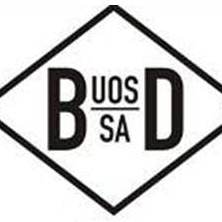
News

Multiple BD Pesach advisories issued today
ANT KATZ
Beth Din’s Pesach advisories
The Beth Din urges the community to “please check the labels very carefully to ensure that the products are properly certified for Pesach”.
 KosherWorld, says the Beth Din, “is the only store where certified by the kashrut division and the Pesach shelves have been checked at this store.”
KosherWorld, says the Beth Din, “is the only store where certified by the kashrut division and the Pesach shelves have been checked at this store.”
All “Kosher for Pesach” local products, the actual ingredients conform to the kashrut division’s Pesach regulations, irrespective of what appears on the packaging.
Sale of chametz
“The selling of the chametz should ideally be done personally through your local rabbi. One can download a sale of chametz form directly from the website or submit the online sale of chametz electronically.”
SA Jewish Report’s digital (PDF) BD guides to
ALL YOU NEED TO KNOW FOR PESACH 5775
The kashrut division advises that some imported products, especially from Israel, carry a valid Pesach hechsher but contain kitniyot or kitniyot derivatives.
“Chametz is only created by the fermentation of flour of one of the five major grains through the medium of water. Fermentation in the presence of all other liquids – such as fruit juices, wine or eggs – do not create chametz.
“The mixture commonly known as ‘egg matzah’ (although it is usually made today with apple or grape juice) may therefore be eaten during Pesach without any concerns of chametz as long as no water is added to the mixture. If even a drop of water is added to the mixture or to any of its ingredients, the mixture may become chametz almost immediately.
“Because of the concern that water may have been added, the custom among Ashkenazim is to refrain from using egg matzah during Pesach, unless it is absolutely necessary for children or the elderly who would have difficulty eating regular matzah; and even then they may not fulfil the mitzvah of eating matzah at the seder with egg matzah
“The custom among Ashkenazim is not to consume kitniyot. There are different opinions regarding kitniyot derivatives. Please check labels carefully and make your purchases in accordance with your customs. Products bearing the OU or Star-K hechsher which are kosher for Pesach, will have the letter ‘P’ adjacent to the logo. The ‘P’ is for Pesach, not Parev.”
Baby formulae and other products
Preferably one should use baby formula that is “Kosher for Pesach”. If the above is not available then the following, although containing kitniyot, may be used. However they should be used in separate vessels with separate utensils and washing-up facilities (that will not be used with “Kosher for Pesach” food items and utensils).
infacare® Gold Soya1 (parev); Infacare® Gold Soya2 (parev); Infacare® Gold Soya3 (parev); Infacare® Soya1 (parev); Infacare® Soya2 (parev); Lactogen 2 (milchik); Nan 1 (milchik); Nan 2 (milchik); Nan3 (milchik).
There is no “Kosher for Pesach” baby formula locally produced.
The Huletts Sugar 2,5 kg 2015 “Kosher for Passover” sugar was produced in January 2015 and the 2014 packaging was used in error.
Ceres Juices did not manufacture for Pesach 2015.
SAD and Safari – plain apples, apricots (excluding Turkish apricots) peaches, pears, are “Kosher for Pesach” even without a “Kosher for Pesach” sticker.
SAD and Safari – prunes and raisins (sunflower oil) are “Kosher for Pesach” even without a “Kosher for Pesach” sticker.
Bon Apetit Original Salad Dressing; Cape Aqua (still, sparkling and flavoured water); Debras (Schmaltz and Vinegar); Delicious-2-Go Frozen Potato Chips; Fresh ‘n Krispy – Salted Crisps (Palm Oil); Goldbees Shmaltz; Milly’s Smoked Trout Fillets; Mooz Dairy (milk, cheese, fresh cream and yoghurt); Selwyn Segal Salted Crisps (Sunflower Oil); Sunset Design (Chocolates); Tiberius Fish Emporium.




